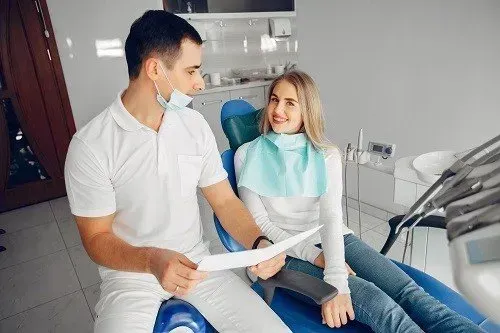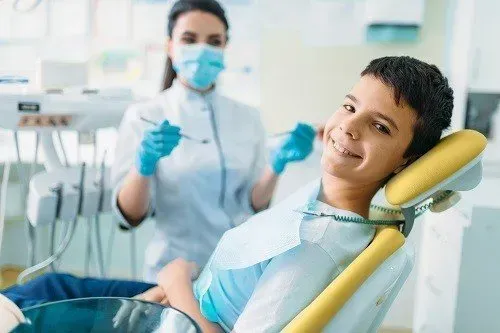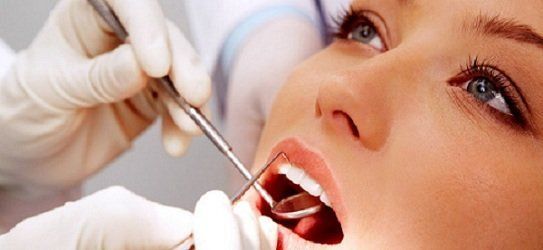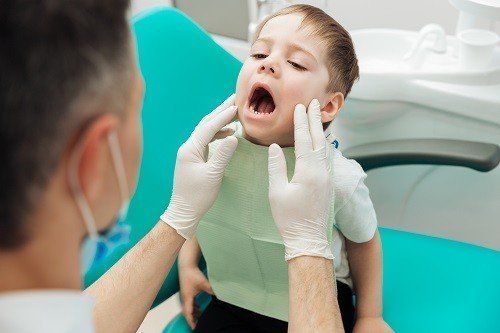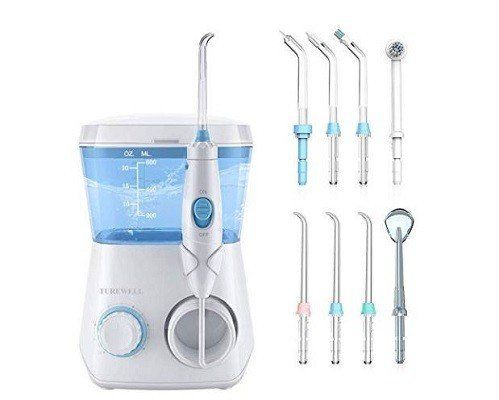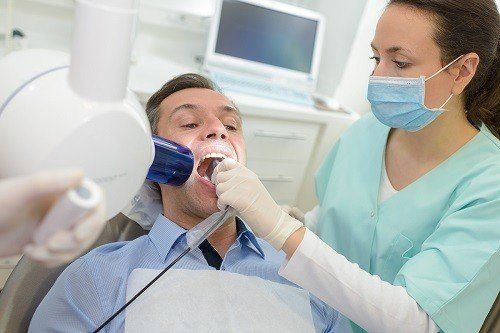Why Your Gums Are Bleeding
It is certainly alarming to see blood in the sink when you spit out your toothpaste, but it may not be a major issue at all. In many cases, you don’t even need to go to the dentist to cure your bleeding gums. Let’s go over the things that commonly cause bleeding gums, what you can do to solve the problems at home and how you know that you need to go to the dentist.
Understanding Your Gums
When you look at your gums, you should see a healthy pink shade – no redness. They should make the shape of a C around the bottom of your tooth and form a small groove where they touch the tooth, almost like a collar.
Although your gums are a small part of your body, they are important. They protect the tooth and the root from bacteria. If your gums are not functioning properly, bacteria can get to the root and cause damage to the tissue there. When the tissue becomes too damaged, it can no longer hold in your teeth, and they will eventually begin to fall out.
Causes of Bleeding Gums
Generally, your gums bleed because they are irritated. Here are a few common things that might be irritating your gums.
Gum Disease – Gingivitis
Bacteria, sometimes known as plaque, will build up in the area surrounding your teeth if you don’t brush and floss properly. If you notice yellow or white marks around your gums, this is a sign that you have significant plaque buildup.
If the bacteria are allowed to grow in your gums, you will eventually suffer from gingivitis. This is the earliest stage of gum disease and you can commonly identify it by bleeding in the gums. Other symptoms might include red gums, bad breath, and sensitive gums.
At this stage, gum disease is reversible. You can visit your dentist and have them scrape away the plaque and bacteria. If you improve your oral hygiene habits, you can keep the plaque away for good and enjoy a healthy smile.
If left untreated, gingivitis can cause your gums to separate from your teeth, allowing even more bacteria in. The longer the bacteria are allowed to stay, the more severe your oral health issues are going to be.
Pregnancy
Hormonal changes impact every aspect of your health when you are expecting. Unfortunately, your oral health is no exception. “Pregnancy gingivitis” is not uncommon among pregnant women. You may notice that your gums are more sensitive, causing them to bleed when you floss or brush. Have a conversation with your dentist about the best ways to take care of your teeth while you are pregnant.
Medicine
Even with the best dental hygiene habits, there are certain medications that can cause sensitive and bleeding gums. Aspirin and blood thinners keep your blood from clotting but they also put you at an increased risk for bleeding gums. In fact, with these medications, your gums may continue to bleed even after you have finished brushing.
If you are on any of these medications, you should make your dentist aware of them. They will be able to help you manage your general health with your dental health.
A New Dental Routine
If you have made a major change in your dental routine, such as flossing more frequently than you have in the past, your gums may bleed until they adjust. The good news is that these new habits will improve your oral health. Eventually, the bleeding will stop completely.
Remember that brushing with too much pressure can also cause your gums to bleed. Brush gently and make sure you have a brush with soft bristles.
When to Make a Dentist Appointment
You don’t necessarily need to see the dentist for bleeding gums. But you might.
If you improve your dental health, your gums should heal on their own.
However, if the bleeding occurs every time you brush your teeth over a long period of time, it is best to let your dentist take a look. You should also see your dentist if your gums continue to bleed for a period of time after you have finished brushing.
The following symptoms also cause to call your dentist:
·Redness or swelling of the gums
·Gums that are sensitive to hot or cold
·Gums separating from the teeth, leaving a gap
·Chronic bad breath or a bad taste in the mouth
·Loose teeth in adults
·Changes in alignment of the teeth
The sooner you make an appointment the see your dentist, the sooner they will be able to reverse the damage to your gums.
If you are looking for a Granville, OH dentist, consider using Sampson Dental Group. We are currently accepting new patients and would love to make you and your family part of ours! For more information or to request a dental appointment, please click here.
